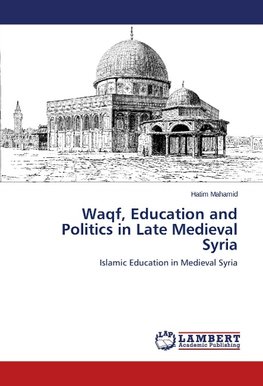
-
 Anglický jazyk
Anglický jazyk
Waqf, Education and Politics in Late Medieval Syria
Autor: Hatim Mahamid
Education in Medieval Syria underwent substantial permutations since the Zangid to the late Mamluk Era. In addition to mosques, different types of institutes (madrasa, khanqah, ribat and zawiya) had increased to a large extent as an urban phenomenon, and... Viac o knihe
Na objednávku
48.06 €
bežná cena: 53.40 €
O knihe
Education in Medieval Syria underwent substantial permutations since the Zangid to the late Mamluk Era. In addition to mosques, different types of institutes (madrasa, khanqah, ribat and zawiya) had increased to a large extent as an urban phenomenon, and reached the top of their expansion rate during the 14th century. Those developments reflected the political and religious changes in the area. Most of the educational institutions in Syria were established by the ruling class, but the role of citizens in dedicating institutes was strong relatively. Establishing such institutes and dedicating endowments (waqf) were characterized by religious motif and charity deeds. However, during the Mamluk period, the social, economic and political considerations were obvious. Consequently, Syrian main cities, Damascus, Aleppo, Jerusalem and others became centres of transmission of knowledge in Islamic education that attracted 'ulama, scholars and Sufi streams from all over the Muslim world. Toward the end of the Mamluk period, educational activities had slowed down in Syria as a result of the waqf decline, especially in the 15th century, because of bad political and economic situations.
- Vydavateľstvo: LAP Lambert Academic Publishing
- Rok vydania: 2015
- Formát: Paperback
- Rozmer: 220 x 150 mm
- Jazyk: Anglický jazyk
- ISBN: 9783659445446






 Ruský jazyk
Ruský jazyk 





